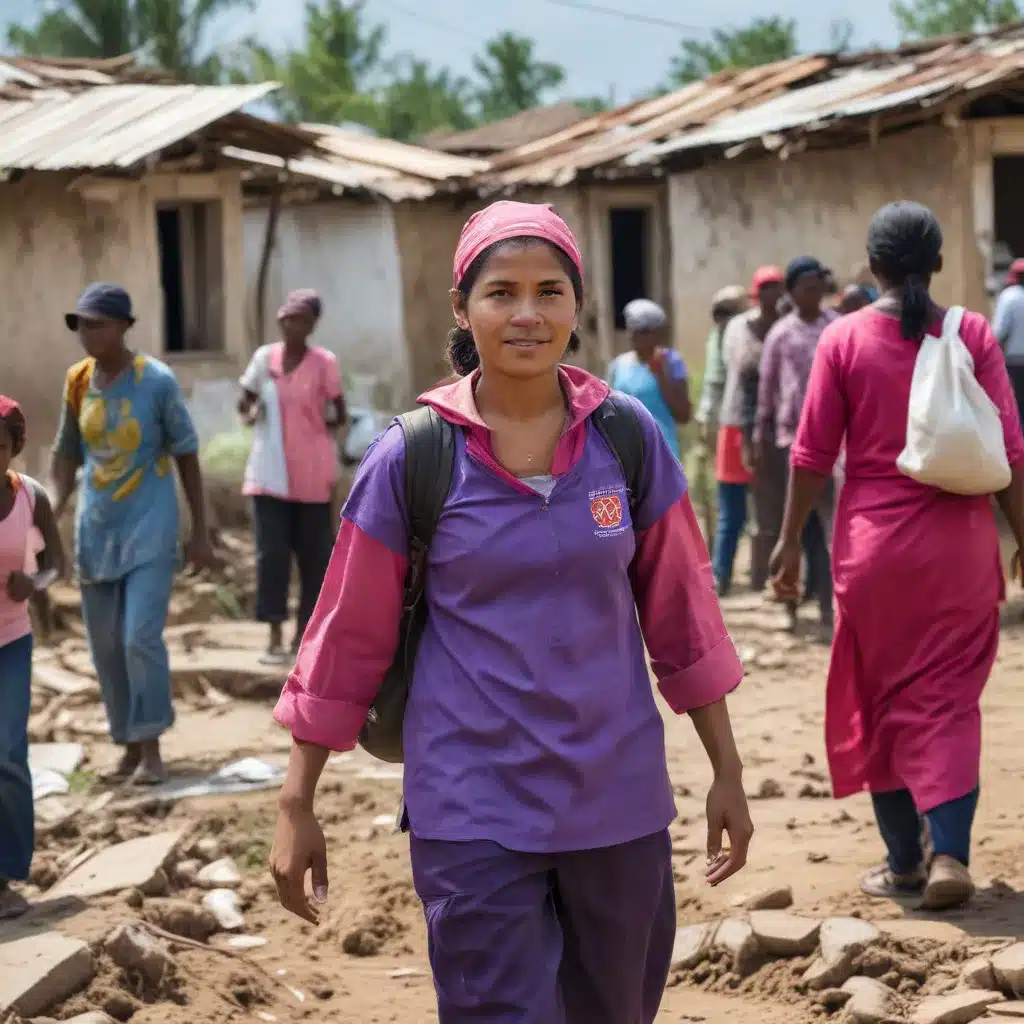
Unleashing the Power of Women’s Leadership in Disaster Resilience
Women’s essential role in disaster response and recovery has long been recognized, yet their contributions are often overlooked or undervalued. Empowering women as leaders in community-based disaster management is crucial for building resilient and inclusive societies. This article explores how women’s leadership can transform disaster preparedness, response, and recovery efforts, drawing insights from case studies in Japan and other regions.
Integrating Gender Perspectives in Disaster Risk Reduction
The Sendai Framework for Disaster Risk Reduction 2015-2030, a landmark international agreement, underscores the critical importance of gender-responsive disaster management. It emphasizes the need to empower women and ensure their active participation in all aspects of disaster risk reduction (DRR). This global recognition has influenced national policies, driving countries like Japan to prioritize women’s leadership in their disaster management strategies.
Japan’s experience in the aftermath of the Great East Japan Earthquake in 2011 and the Noto Earthquake in 2024 offers valuable lessons on the transformative impact of women-led initiatives. In Sendai, the Gender Equality Promotion Center played a pivotal role in supporting women during and after the Great East Japan Earthquake, providing essential services, counseling, and opportunities for community-driven recovery efforts.
“By integrating gender perspectives into all aspects of DRR, the Sendai Framework aims to create more equitable and effective disaster response and recovery strategies.”
Empowering Women in Disaster Leadership: Case Studies from Japan
Narratives of Resilience: The Role of Storytelling in Minami Sanriku
The experiences of Ms. Abe, the owner of Hotel Kanyo in Minami Sanriku, demonstrate the transformative power of women’s leadership in disaster response and recovery. When the Great East Japan Earthquake struck, Ms. Abe and her staff acted swiftly to evacuate guests and quickly organized the hotel to become a shelter for over 600 residents. Despite the devastation, Ms. Abe’s unwavering determination and resourcefulness enabled the hotel to provide essential services, such as water, food, and educational programs for children, while also supporting the broader community’s recovery efforts.
“Ms. Abe’s leadership ensured that the community could recover and rebuild, with a focus on sustaining local businesses and nurturing future generations.”
Economic Resilience and Female Entrepreneurship: The Case of a Blueberry Farmer
The story of Hira Miyuki Farm in Noto Town highlights the critical role of female entrepreneurs in disaster recovery. When the 2024 Noto Earthquake severely damaged the farm and processing plant, Miyuki Hira, the farm’s owner, turned to innovative solutions, such as crowdfunding and community partnerships, to rebuild and sustain her business. Miyuki’s resilience and resourcefulness not only preserved her family’s legacy but also contributed to the broader economic recovery of the region, demonstrating the importance of empowering women as leaders in disaster-stricken communities.
“Miyuki’s determination to recover and sustain the farm provided a source of courage and inspiration to many others affected by the disaster, particularly women.”
Youth Leadership in Crisis: A Case Study of a Young Shelter Organizer
The experience of Mayumi Tada, a 25-year-old woman who stepped up to manage a community evacuation center and lead the recovery efforts of her family’s guesthouse business in Noto Town, showcases the power of youth leadership in disaster response. Despite the overwhelming challenges, Mayumi’s unwavering commitment to her community and her innovative approaches to supporting the recovery process have been invaluable in the aftermath of the 2024 Noto Earthquake.
“Mayumi’s belief in the resurgence of her community, despite the numerous damages and the overwhelming odds, underscores the importance of supporting and empowering young leaders in disaster recovery and community rebuilding efforts.”
Overcoming Intersectional Vulnerabilities: The Resilience of Disabled Women
The experiences of Momoko, a child with significant medical needs, and her mother, Miwako, a single parent, during the Great East Japan Earthquake highlight the compounded challenges faced by those with disabilities and their caregivers in disaster situations. Their story underscores the critical need for disaster response strategies that address the intersectional vulnerabilities of marginalized groups, including women with caregiving responsibilities.
“By addressing these intersectional vulnerabilities, disaster response strategies can become more inclusive and effective, ultimately contributing to the resilience of all members of the community.”
The Importance of External Engagement in Amplifying Women’s Voices
The Sasakawa USA Emerging Experts Delegation’s visit to Japan exemplifies the vital role that external engagement plays in elevating the voices and experiences of women affected by disasters. By directly engaging with local women in Sendai, Noto, and Minami Sanriku, the delegation was able to gain a deeper understanding of the unique challenges and contributions of women in disaster contexts, which can inform more inclusive and effective disaster management policies.
“Such exchanges create opportunities for further collaboration, foster mutual understanding, and help to ensure that the experiences of women are integrated into disaster response and recovery strategies.”
Conclusion: Toward a More Resilient and Inclusive Future
The case studies and insights presented in this article underline the indispensable role of women’s leadership in disaster response and recovery. By empowering women as decision-makers, community organizers, and social entrepreneurs, disaster management strategies can become more inclusive, equitable, and effective in building resilient communities.
To further support and amplify women’s leadership in disaster management, it is crucial to:
- Strengthen institutional support for gender-focused organizations and initiatives that empower women during and after disasters.
- Develop inclusive disaster management strategies that consider the unique needs and contributions of women, as well as other marginalized groups.
- Encourage international collaboration and knowledge-sharing to foster cross-cultural understanding and the dissemination of best practices in women’s disaster leadership.
By embracing the transformative power of women’s leadership, we can create a more resilient and inclusive future, where communities can better withstand and recover from the devastating impacts of natural disasters.

